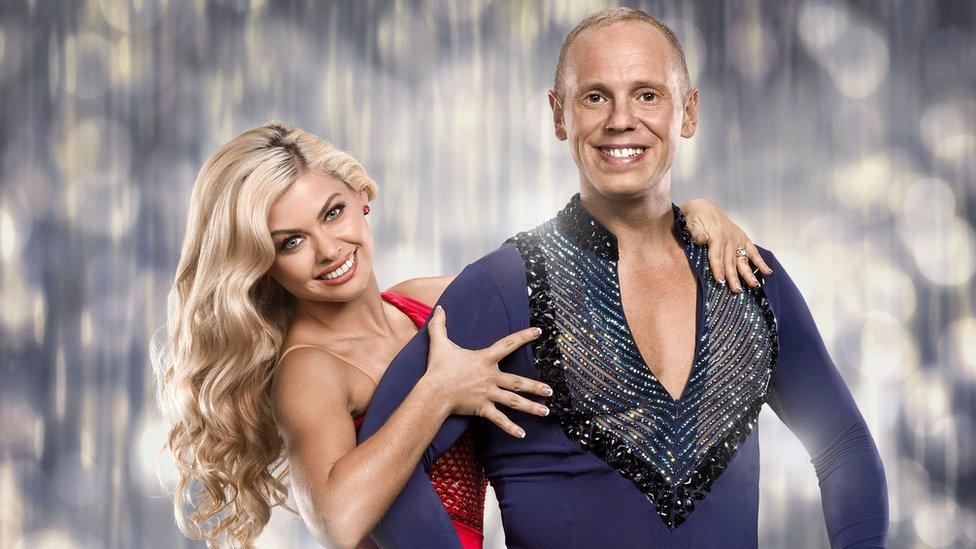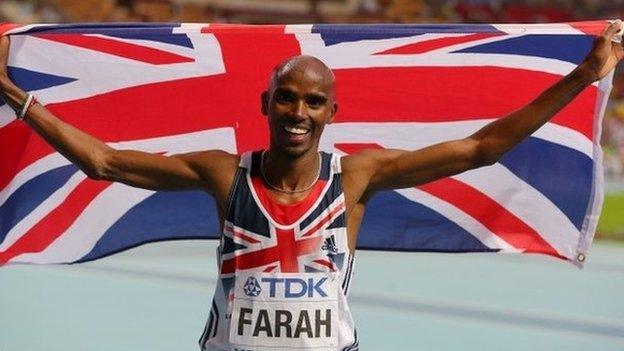Smith, Jones and Cameron: What your surname says about you
- Published

Sam Smith, Louis Smith and Sheridan Smith - singer, gymnast and actress respectively - share the most common name
"What's in a name?" asked Shakespeare's Juliet of Romeo. Their fated relationship suggests quite a lot. But do any of us know what our surnames mean or how they can influence our lives?
A new study has revealed the origins of 45,000 surnames, external, shedding light on our ancestors' jobs, what they looked like and where they lived.
Researchers at the University of the West of England spent more than six years trawling through our family names, from the run-of the-mill Joneses and Smiths to the rarer Twelvetrees and Farahs.
The full list will be published in the Oxford Dictionary of Family Names in Britain and Ireland, which at £400 is unlikely to make it to your bookshelf, but will be available in some public libraries.
Here, we reveal the stories behind some of Britain's best-known names - and whether a surname can really affect how you go about your life.
Crook-nosed Camerons
It's likely that your surname is based on one of four things, including:
A home town or particular place (Hill, Green, Winchester, Lancaster)
An occupation (Baker, Butcher, Taylor)
A nickname describing someone's features or personality (Goodfellow, Short, Long)
A variation on a father's name, known as "patronymic" names (Jenkinson, Thomson, Jackson)
"A Scottish name lots of people know is Cameron," said Dr Harry Parkin, one of the authors of the study.
"It is Scottish Gaelic in origin and means something like crooked nose or bent nose."
Do the stars live up to their names?
The X Factor's Simon Cowell is no stranger to argument, having recently told fellow judge Nicole Scherzinger to "shut up" while on air.
By way of excuse, Cowell's surname hints at possible warmongering origins. Cowell can derive from the Gaelic Mac Cathmhaoil, which literally means a "son of battle chief".

Simon Cowell, or "Simon son of battle chief", as the X Factor judge's name suggests
I'm A Celebrity... Get Me Out of Here! contestant Larry Lamb's name could come from the Irish word "Luan", meaning hound or warrior - no doubt a useful trait in the jungle.

Actor Larry Lamb's surname could mean warrior - or shepherd
Rinder is one of the rarer surnames with violent connotations. It is a variation of Render, meaning "to tear, to lacerate, to butcher" in Middle English - perhaps a reflection of Judge Rinder's moves on Strictly Come Dancing..

Judge Rinder has been "tearing" up the dance floor in BBC One's Strictly Come Dancing
The origin of celebrity couple Louise and Jamie Redknapp's surname, however, doesn't quite match their glamorous lifestyle.

Louise and Jamie Redknapp's surname can mean a "red haired servant"
Roughly translating as a "red-haired servant boy", Redknapp - which can also mean hill - is one of 8,000 names included in the study that has not appeared in previous dictionaries.
Half a million Smiths
You're most likely to live next door to a family of Smiths, according to the study.
With 500,000 bearers of the name today, Smith is the most common surname in Britain and Ireland, alongside:
Jones (more than 300,000 in 1881; currently 400,000)
Williams (just over 200,000 in 1881, nearly 300,000 now)
Brown and Taylor (both just under 200,000 in 1881, now over 250,000)
Johnson (just over 100,000 in 1881, now more than 150,000)
When the name fits the job
Did Linda Dunk choose to be an underwater photographer because of her surname? Or, by the same token, Henry Sick train to be a doctor?
"Actual science and research is being done to back up this theory," says Frank Swain of New Scientist magazine.
The idea that our name influences which job we choose has earned itself the term "nominative determinism" - coined by the late John Hoyland, who collected odd facts about science for the magazine.
"We've collected thousands of examples over the years," says Mr Swain. "It became a trope that John and myself tried in vain to kill on uncountable occasions."
Some names can even make us more prone to illness, according to research.
The British Medical Journal found that patients named "Brady", external were more likely to need a pacemaker, in a 2013 study of people in Dublin with the surname.
They found a statistical link between the family name and medical term for a slow heart rate - Bradycardia.
The authors of the dictionary are now attempting to find out the meaning of every name in the UK and Ireland.
"It's a subject of tremendous interest," Dr Parkin said.
- Published17 November 2016

- Published4 November 2016
